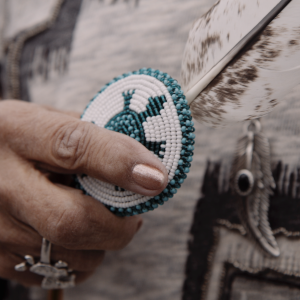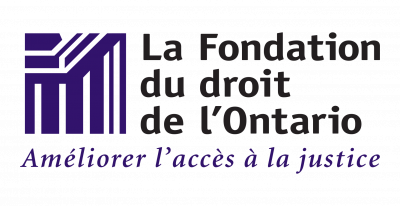
By Aliesha Arndt, Ministry of the Attorney General
A council of Indigenous Elders dedicated to helping repair the relationship between the Ontario government and the province’s Indigenous communities has received a prestigious award for its contributions to justice issues.
The Ministry of the Attorney General’s Elders’ Council is the 2020 recipient of the Guthrie Award, The Law Foundation of Ontario’s signature award to recognize exceptional access to justice champions.
Within Indigenous Nations, Elders carry the responsibility of providing customary knowledge and guidance to leadership and community members as they address challenges and make decisions. Elders support community leadership by ensuring that the voices and perspectives of community members are meaningfully heard in all aspects of governance and that all decisions are made with the best interests of the community in mind.
The Elders’ Council was established in 2016, and is comprised of Indigenous Knowledge Keepers from across the province. The goal of the Council has been to guide the work of the Ministry of Attorney General’s Indigenous Justice Division and its staff as they work towards repairing the relationship between the ministry and Indigenous communities within Ontario. The Council has demonstrated an unwavering commitment to supporting the reclamation of Indigenous legal systems and strengthening justice for Indigenous peoples in the province. To date, three Attorneys General for Ontario have benefitted from direct advice and guidance from the Council.
“It’s needed because all these years, our voices have not been heard at the government level,” Elders’ Council co-founder and member Jan Kahehti:io Longboat says in an award video. “So the Elders are there to make suggestions, to make recommendations and work together to make change.”
For over five years, the Council has championed and promoted public understanding of the history and ongoing legacies of assimilative government laws and policies that have targeted Indigenous peoples. The Indigenous Justice Division is humbled by the knowledge and expertise the Council has also dedicated to developing, reviewing, and revising Bimickaway, which is Indigenous cultural competency training for justice sector workers. The Indigenous Justice Division owes a debt of gratitude to the Council for their tireless efforts in co-facilitating the curriculum for public servants across Ontario.
“The Elders change the hearts and minds of government employees by creating respectful forums for dialogue,” says Kimberly Murray, Assistant Deputy Attorney General, Indigenous Justice Division. “In all of its work, the Elders’ Council has had a deep and transformative impact on everyone with whom they have interacted.”
The Council bases its work on the principles of Nation-building, appreciation, balance, justice, respect, reciprocity, sovereignty, honesty, and forgiveness. The Council recognizes reconciliation as one of its main responsibilities and draws on their teachings and knowledge to inform its advice.
The members of the Council do not seek personal recognition for their work but rather remain steadfast in their dedication to improve access to justice for Indigenous people for the benefit of the larger community. With that said, the Ministry of the Attorney General is thrilled that the Elders’ Council has been recognized and is honoured to carry out our work under its careful guidance.
Versions of this article appeared on the Ministry of the Attorney General intranet and in an Ontario Public Service newsletter. Used with author’s permission.


